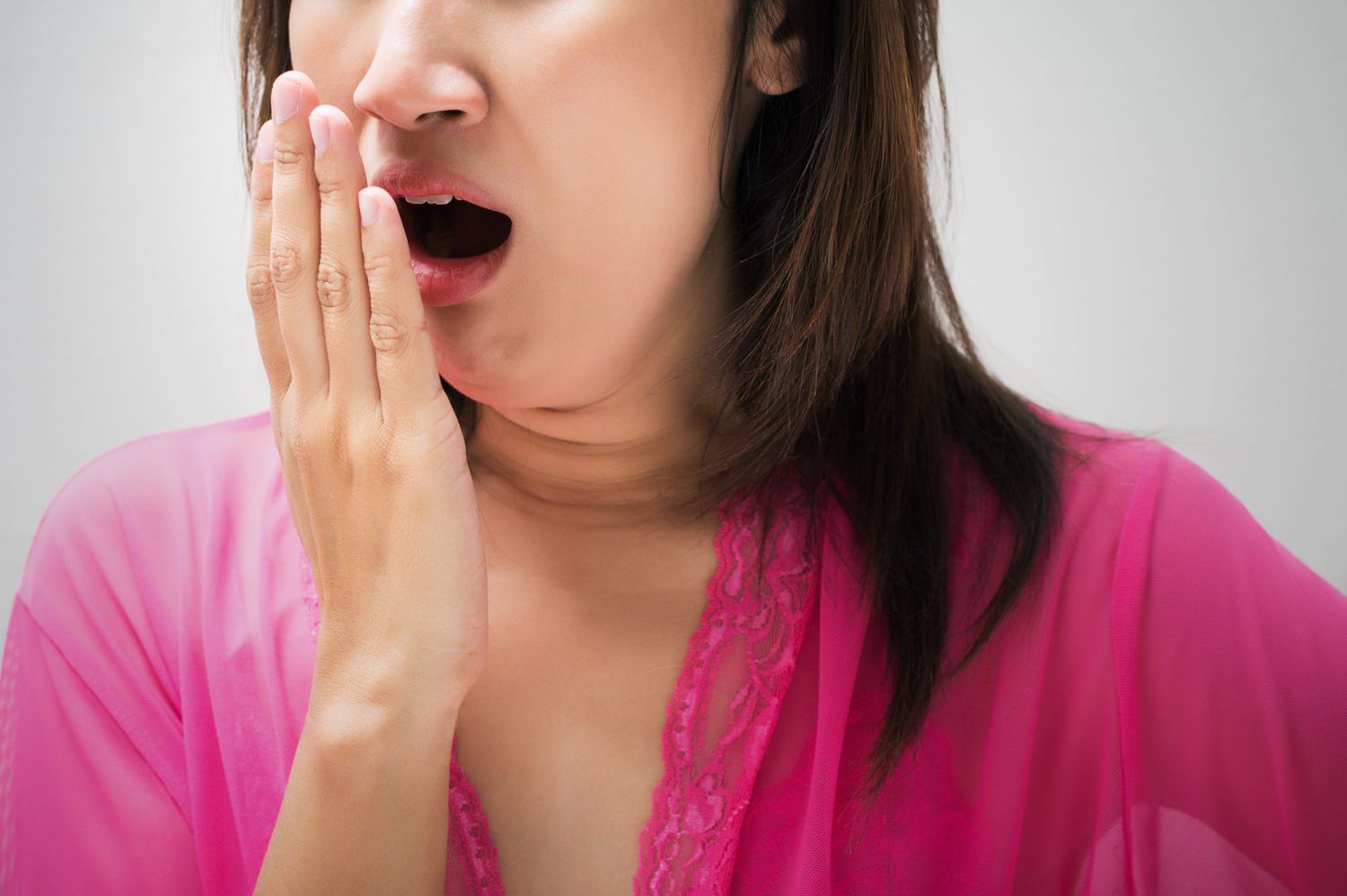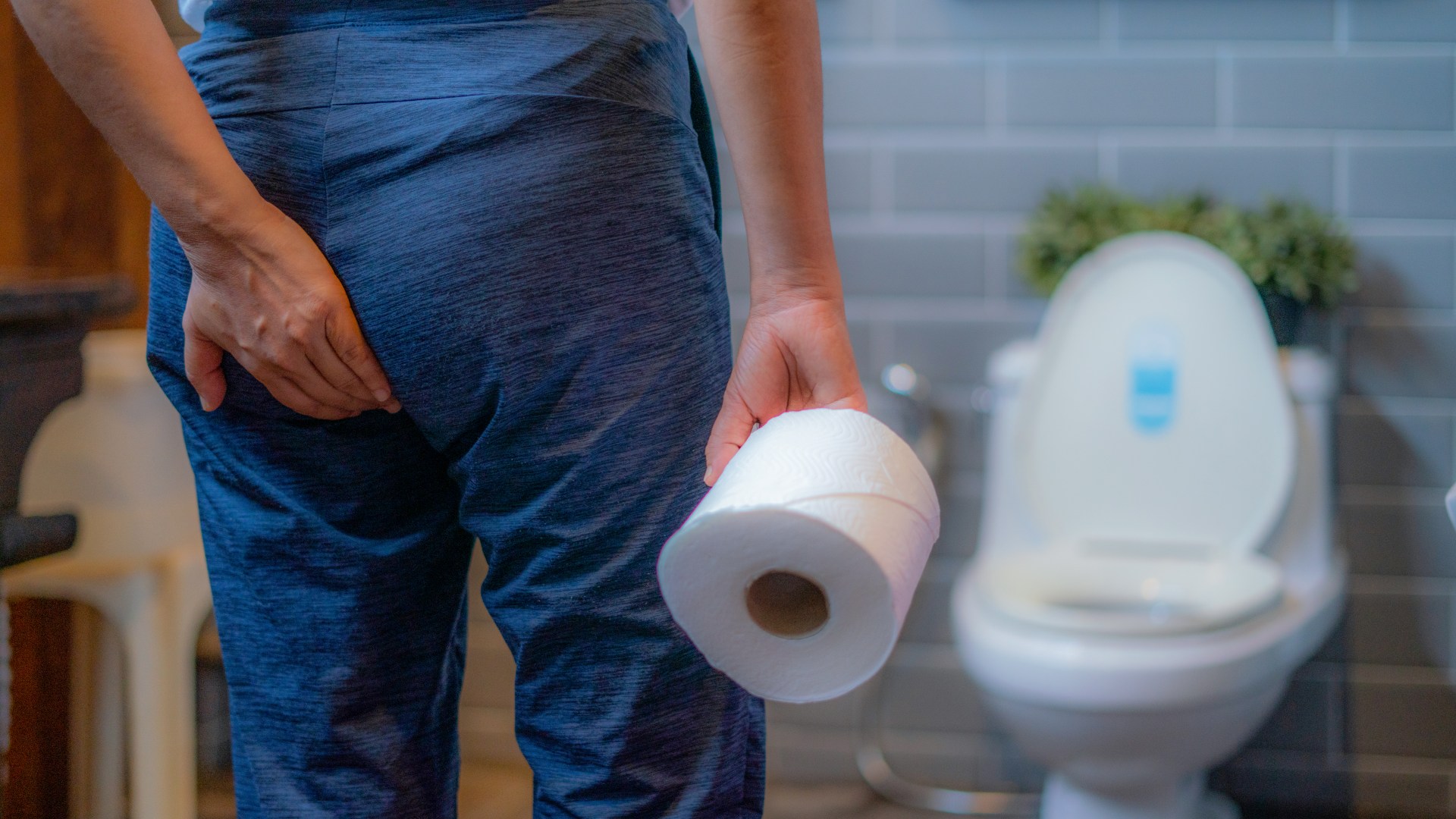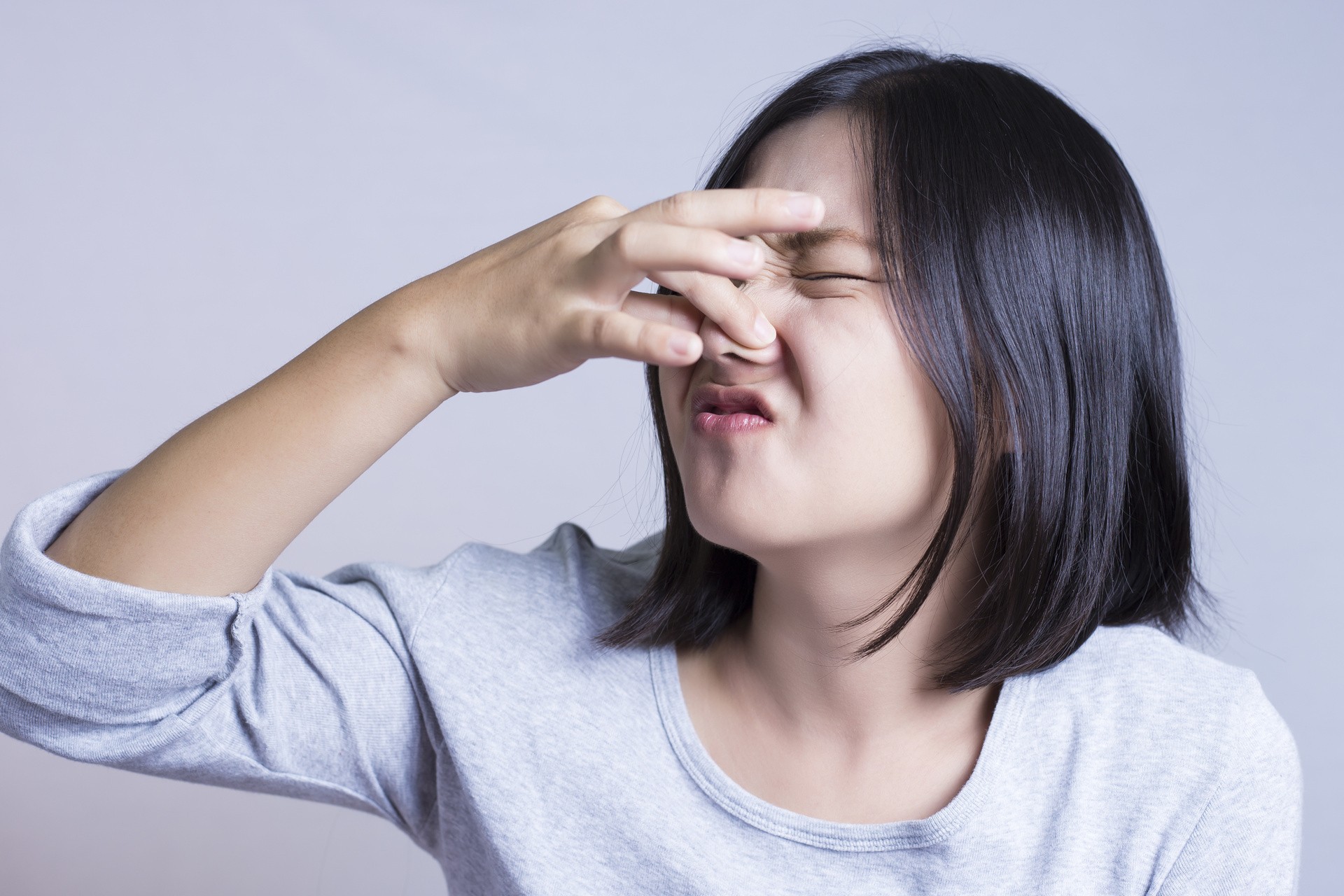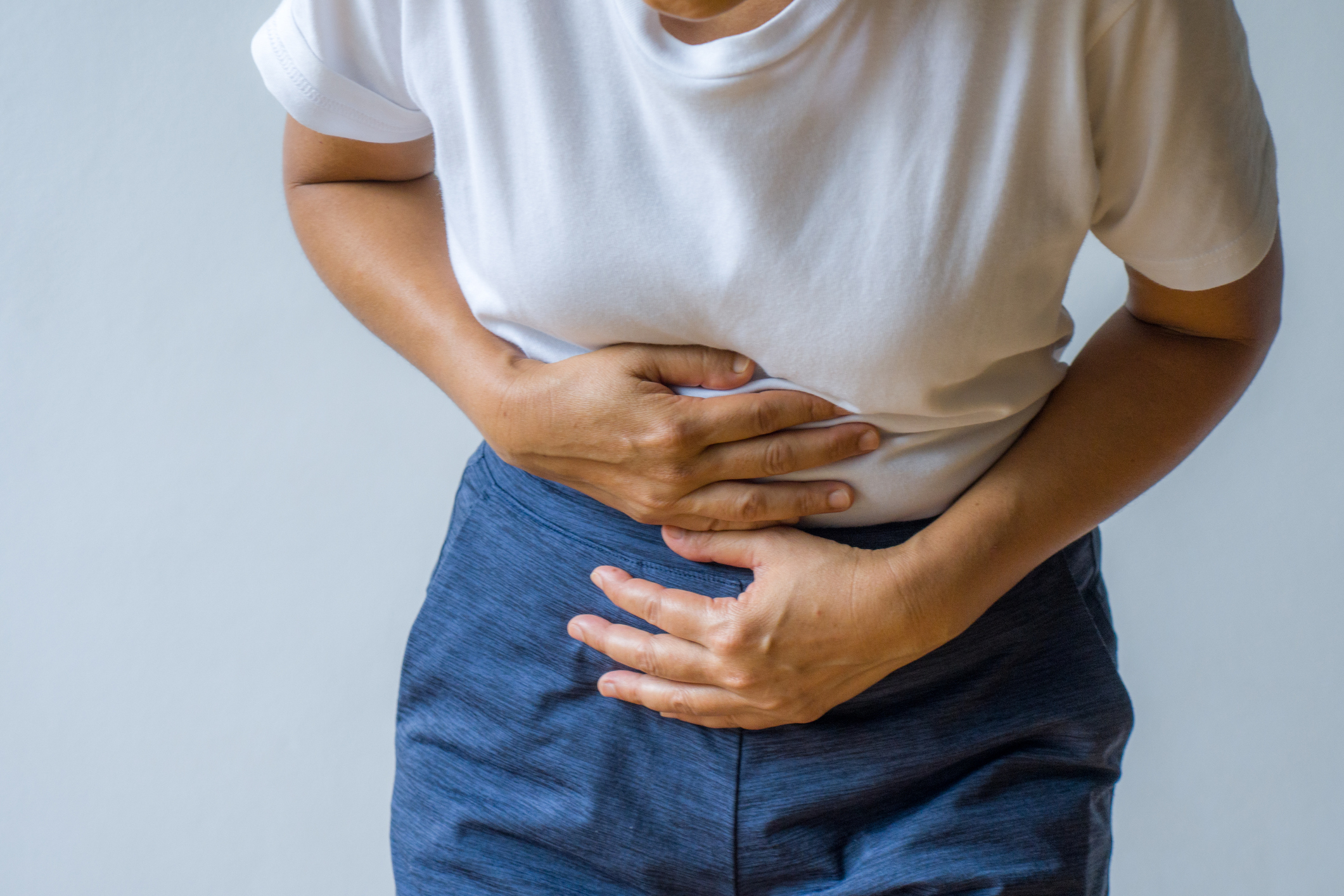

FAQs
When You Burp And It Smells Like A Fart
Published: July 31, 2023
Curious about why your burps have started smelling like farts? Get answers to this and other general questions about bodily functions.
(Many of the links in this article redirect to a specific reviewed product. Your purchase of these products through affiliate links helps to generate commission for Under-tec.com, at no extra cost. Learn more)
Table of Contents
Introduction
Have you ever experienced a moment when you burp, and it smells suspiciously similar to a fart? It can be an embarrassing and uncomfortable situation, leaving you wondering why it happens. Rest assured, you’re not alone. Many people have encountered this peculiar phenomenon, and there are several factors that can contribute to it.
Burping, also known as belching, is a natural bodily function that helps release excess gas from the stomach. It’s a normal occurrence that happens when you swallow air or consume carbonated drinks. On the other hand, farting, or passing gas, is the release of gas expelled from the digestive tract through the rectum. While burping and farting serve different purposes, there are instances where burps can emit a similar odor to farts.
This article aims to explore why burps sometimes smell like farts and dive into the various causes behind this peculiar occurrence. Whether you’ve experienced this personally or are simply curious, read on to gain a better understanding of why it happens and what you can do about it.
Why Do Burps Sometimes Smell Like Farts?
The unpleasant smell that can accompany burps, resembling that of a fart, can be attributed to the presence of certain gases and compounds in the digestive system. When you consume food or drink, the digestive process begins in the mouth and continues throughout the gastrointestinal tract. Along the way, various gases can be produced, including hydrogen sulfide and methane, which are responsible for the foul odor.
Hydrogen sulfide is a colorless gas that has a distinct rotten egg smell. It is produced by bacteria in the digestive system as they break down certain sulfur-containing foods, such as eggs, meat, and cruciferous vegetables like broccoli and cauliflower. If the digestion process is not efficient or if there is an imbalance of bacteria in the gut, hydrogen sulfide can accumulate and contribute to foul-smelling burps.
In addition to hydrogen sulfide, methane gas can also be produced during digestion. Methane is odorless, but when combined with other gases, it can create an unpleasant smell. Excessive gas production in the digestive system, which can happen if you consume large amounts of gas-producing foods or if there is an issue with digestion, can result in burps that smell like farts.
It is important to note that occasional instances of burps smelling like farts are generally harmless and can be attributed to dietary factors. However, if you consistently experience this issue or if it is accompanied by other symptoms such as abdominal pain, bloating, or changes in bowel movements, it may be a sign of an underlying gastrointestinal condition that warrants further investigation.
Causes for Burps Smelling Like Farts
There are several factors that can contribute to burps smelling like farts. Understanding these causes can help you identify the root of the issue and take appropriate steps to address it. Here are some common causes:
1. Diet: One of the primary culprits behind burps that smell like farts is the food you consume. Certain foods contain sulfur compounds, such as eggs, meat, beans, cabbage, and onions, that can produce hydrogen sulfide gas during digestion. Consuming these foods in large quantities or if you have a sensitivity to them can lead to foul-smelling burps.
2. Poor Digestion: Inefficient digestion can also contribute to burps with a fart-like odor. When your digestive system struggles to break down food properly, it can lead to an overgrowth of bacteria in the gut. These bacteria can produce excessive amounts of gases, including hydrogen sulfide, which can cause smelly burps.
3. Gastrointestinal Conditions: Certain gastrointestinal conditions can affect how food is digested and processed in the body, leading to odorous burps. Conditions such as gastroesophageal reflux disease (GERD), gastritis, and irritable bowel syndrome (IBS) can cause the contents of the stomach to regurgitate into the esophagus, resulting in foul-smelling burps.
4. Medications and Supplements: Some medications and supplements can have side effects that include burping with an unpleasant odor. For example, certain antibiotics and sulfur-containing supplements can alter the balance of bacteria in the gut, leading to gas production and smelly burps.
5. Lifestyle Factors: Various lifestyle factors can contribute to burps smelling like farts. Eating too quickly or talking while eating can cause you to swallow air, resulting in excess gas in the stomach and foul-smelling burps. Drinking carbonated beverages or using a straw can also introduce excess air into the digestive system.
By identifying the underlying cause of your burps smelling like farts, you can make necessary changes to your diet and lifestyle, and consult a healthcare professional if needed. Additionally, keeping a food diary to track your symptoms can help pinpoint specific trigger foods or patterns that can be modified to alleviate the issue.
The Role of Diet in Burp Odor
When it comes to the odor of burps, diet plays a significant role. The foods and beverages you consume can directly impact the gases released during digestion, ultimately affecting the smell of your burps. Understanding how certain foods contribute to burp odor can help you make informed dietary choices and minimize the unpleasant smell. Here are some key factors to consider:
1. Sulfur-Containing Foods: Foods that contain sulfur compounds, such as eggs, meat, cruciferous vegetables (broccoli, cauliflower, cabbage), and onions, can produce foul-smelling burps. These foods contain sulfur-containing amino acids, which bacteria in the digestive system break down into hydrogen sulfide gas. The gas is then released through burping, resulting in an odor resembling that of rotten eggs.
2. Spicy and Strongly Flavored Foods: Spicy and strongly flavored foods, such as garlic, curry, and certain spices, can contribute to burps with an intense and pungent smell. These foods can stimulate the production of stomach acid and increase the likelihood of acid reflux, which can lead to odorous burps.
3. Carbonated Drinks: Consuming carbonated beverages, such as soda and sparkling water, can introduce excess air into the digestive system, leading to increased burping. This can result in burps with a similar odor to farts. Additionally, the carbonation can also cause the stomach to distend, which exacerbates the release of gas through burping.
4. Alcohol and Caffeine: Alcohol and caffeine can both have an impact on the odor of burps. Alcohol can stimulate the production of stomach acid, leading to acid reflux and potentially foul-smelling burps. Caffeinated beverages like coffee and energy drinks can also increase acid production and contribute to burp odor.
5. High-Fat and Fried Foods: Foods that are high in fats or deep-fried can slow down digestion and cause food to stay in the stomach for a longer time. This can lead to increased fermentation and gas production, resulting in burps with an unpleasant odor.
While it may be impractical or undesirable to completely eliminate certain foods from your diet, being aware of the impact they can have on burp odor allows you to make educated choices. Experimenting with portion sizes, cooking methods, and incorporating other flavorful ingredients can help mitigate the odor while still enjoying your favorite foods.
Gastrointestinal Conditions and Burp Odor
While occasional burps that smell like farts are generally harmless and can be attributed to certain dietary factors, persistent or chronic foul-smelling burps may indicate an underlying gastrointestinal condition. These conditions can disrupt the normal digestive process and contribute to malodorous burps. Here are some common gastrointestinal conditions that can cause burp odor:
1. Gastroesophageal Reflux Disease (GERD): GERD is a chronic condition where stomach acid frequently flows back into the esophagus, causing symptoms such as heartburn, regurgitation, and burping. The refluxed stomach acid can have an unpleasant odor, leading to burps that smell like farts.
2. Gastritis: Gastritis refers to the inflammation of the stomach lining and can be caused by various factors like bacterial infection, excessive alcohol consumption, or prolonged use of nonsteroidal anti-inflammatory drugs (NSAIDs). Inflammation and irritation in the stomach can disrupt the normal digestion process, leading to burps with an unpleasant odor.
3. Helicobacter pylori (H. pylori) Infection: H. pylori is a type of bacteria that can reside in the stomach lining and cause infections. This infection can result in chronic gastritis and ulcers. Burps associated with H. pylori infections may have a foul odor due to the bacterial imbalances in the stomach.
4. Small Intestinal Bacterial Overgrowth (SIBO): SIBO occurs when there is an overgrowth of bacteria in the small intestine. This can disrupt the normal digestion process and lead to the production of excessive gases, including hydrogen sulfide and methane. These gases can result in burps with a fart-like odor.
5. Irritable Bowel Syndrome (IBS): IBS is a common gastrointestinal disorder characterized by abdominal pain, changes in bowel habits, and bloating. People with IBS often experience excessive gas production, which can contribute to foul-smelling burps.
If you consistently experience foul-smelling burps along with other persistent gastrointestinal symptoms, it is advisable to consult a healthcare professional for a proper diagnosis and treatment. They can evaluate your symptoms, perform necessary tests, and recommend appropriate interventions to address the underlying condition and alleviate burp odor.
Tips to Reduce Burps That Smell Like Farts
If you experience burps that smell like farts and find it bothersome or embarrassing, there are steps you can take to reduce their occurrence and minimize the unpleasant odor. Here are some helpful tips to consider:
1. Be Mindful of Your Eating Habits: Slow down while eating and chew your food thoroughly. Eating too quickly can cause you to swallow air, leading to increased burping. Avoid talking while eating as it can also contribute to excess air ingestion.
2. Avoid Carbonated Beverages: Carbonated drinks introduce extra gas into your digestive system, increasing the likelihood of burping. Opt for still water or herbal teas instead. Be cautious of using straws, as they can lead to excess air swallowing.
3. Identify and Modify Trigger Foods: Keep a food diary to track the foods that consistently result in foul-smelling burps. Reduce your intake of sulfur-containing foods, spicy and heavily seasoned dishes, carbonated beverages, and high-fat or fried foods. Experiment with cooking methods and flavor alternatives to still enjoy your meals without the accompanying odor.
4. Eat Smaller, More Frequent Meals: Consuming large meals can put extra pressure on your stomach, leading to increased burping. Opt for smaller, more frequent meals to aid digestion and reduce gas buildup.
5. Manage Stress and Anxiety: Stress and anxiety can affect digestion and increase gas production. Practice stress management techniques such as deep breathing exercises, meditation, or engaging in activities that help you relax and unwind.
6. Stay Hydrated: Drinking enough fluids throughout the day can help maintain proper digestion and reduce the likelihood of excessive gas production. Aim to drink plenty of water and limit your intake of sugary or caffeinated beverages.
7. Consider Probiotics: Probiotics are beneficial bacteria that can support a healthy gut microbiota and improve digestion. Talk to your healthcare professional about incorporating a probiotic supplement or consuming probiotic-rich foods like yogurt or fermented vegetables into your diet.
If these tips do not alleviate the issue or if you experience persistent foul-smelling burps accompanied by other troublesome symptoms, it’s recommended to consult a healthcare professional. They can evaluate your situation, identify any underlying conditions, and provide appropriate guidance and treatment options for your specific needs.
When to Seek Medical Attention
While occasional burps that smell like farts are usually harmless and can be attributed to dietary factors or lifestyle habits, there are instances where seeking medical attention is necessary. Here are some signs that indicate it’s time to consult a healthcare professional:
1. Persistent or Chronic Burp Odor: If you consistently experience foul-smelling burps that do not improve with dietary modifications or lifestyle changes, it’s essential to see a doctor. Persistent odor can be a sign of an underlying gastrointestinal condition that requires medical intervention.
2. Severe or Worsening Symptoms: If you experience severe abdominal pain, frequent episodes of acid reflux, unexplained weight loss, blood in your vomit or stool, or other concerning symptoms along with foul-smelling burps, it’s crucial to seek medical attention promptly. These symptoms could indicate a more serious underlying condition that needs evaluation and treatment.
3. Changes in Bowel Habits: If you notice significant changes in your bowel movements, such as diarrhea, constipation, or the presence of mucus or blood in your stool, along with foul-smelling burps, it may be a sign of an underlying gastrointestinal disorder that requires medical assessment.
4. Impact on Quality of Life: If the odor of your burps negatively affects your self-esteem, social interactions, or quality of life, it’s worth discussing your concerns with a healthcare professional. They can provide guidance, support, and potential treatment options to alleviate the issue.
5. Family History or Risk Factors: If you have a family history of gastrointestinal conditions or if you have other risk factors such as a history of ulcers, stomach infections, or inflammatory bowel disease, it’s advisable to consult a healthcare professional. They can perform appropriate screenings or tests to rule out any underlying issues contributing to the burp odor.
Remember, a healthcare professional is best equipped to evaluate your symptoms, provide an accurate diagnosis, and recommend appropriate treatment options. They can conduct necessary tests, such as blood work, stool samples, or imaging studies, to determine the underlying cause of your symptoms and develop a personalized treatment plan to address the issue at hand.
Conclusion
Experiencing burps that smell like farts can be an uncomfortable and embarrassing issue, but it’s a common occurrence that can be attributed to various factors. Understanding the causes and implementing strategies to reduce the odor can help alleviate the problem and improve your overall digestive health.
In many cases, the odor of burps can be linked to certain foods, lifestyle habits, or temporary gastrointestinal issues. By being mindful of your diet, eating habits, and managing stress levels, you can make a positive impact on reducing the odor of your burps. However, if you consistently experience foul-smelling burps alongside other concerning symptoms, seeking medical attention is essential to rule out underlying gastrointestinal conditions or infections.
Remember to consult with a healthcare professional if you have any persistent or worsening symptoms, significant changes in bowel habits, or if the odor of your burps significantly impacts your quality of life. Your healthcare provider can provide personalized guidance, conduct necessary tests or screenings, and develop an appropriate treatment plan tailored to your specific needs.
Ultimately, by being mindful of your dietary choices, making lifestyle adjustments, and seeking medical attention when necessary, you can mitigate the issue of burps that smell like farts and improve your overall digestive well-being.










